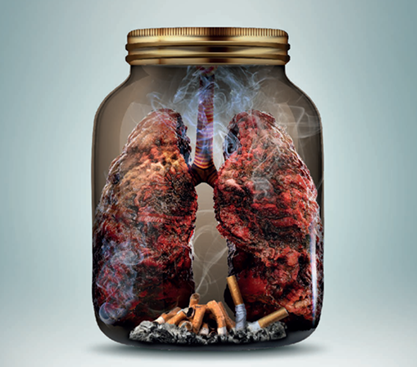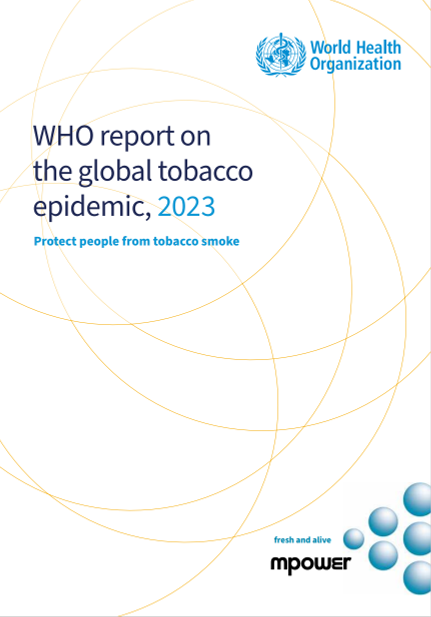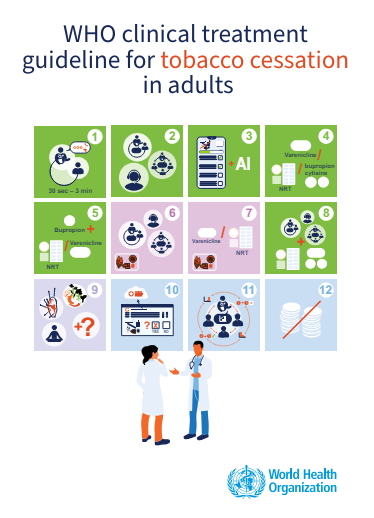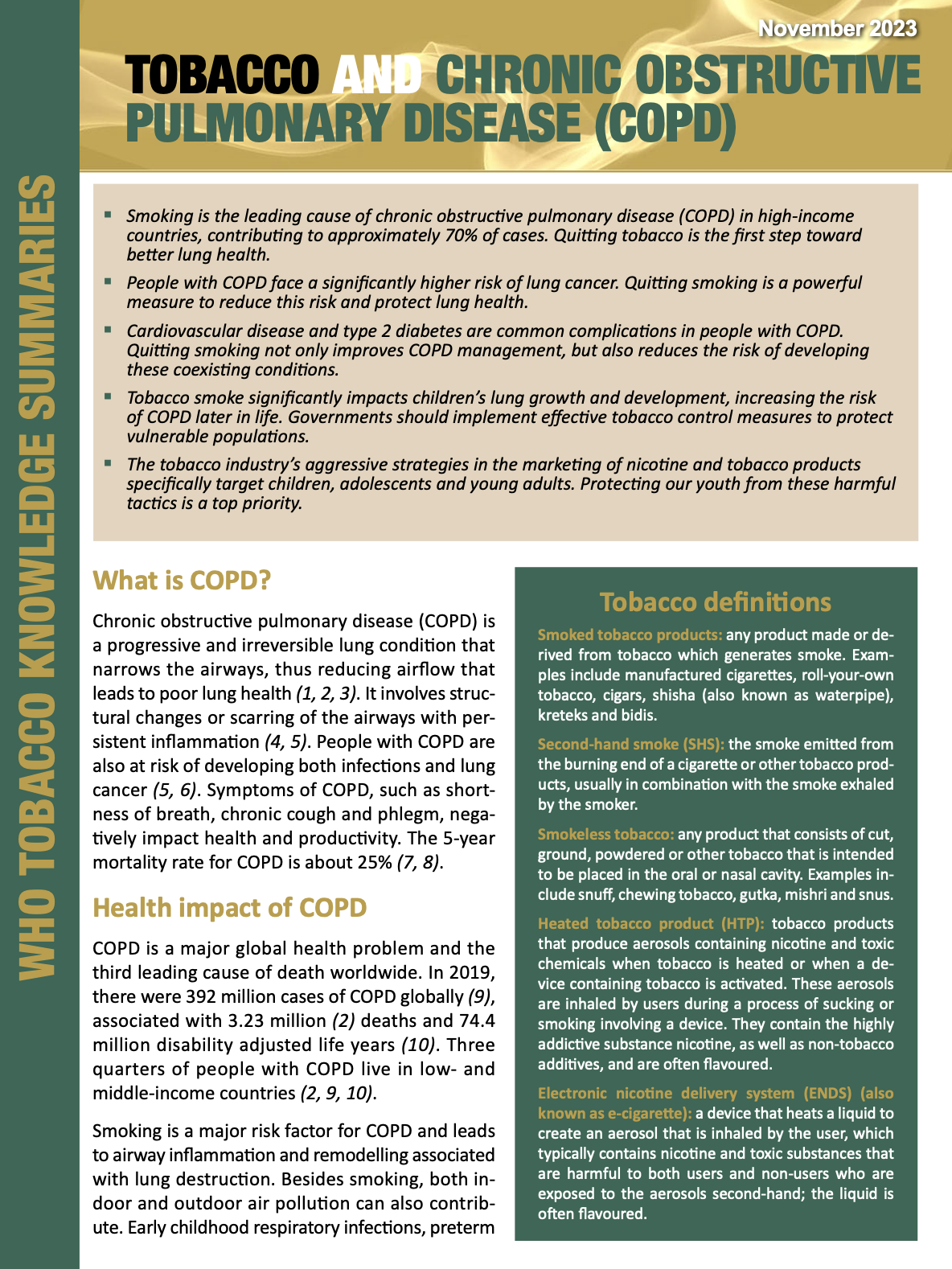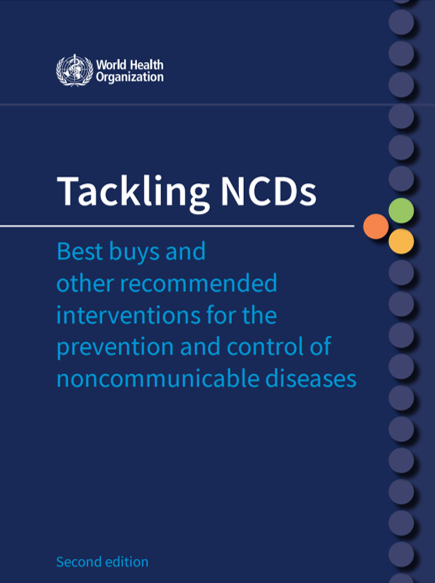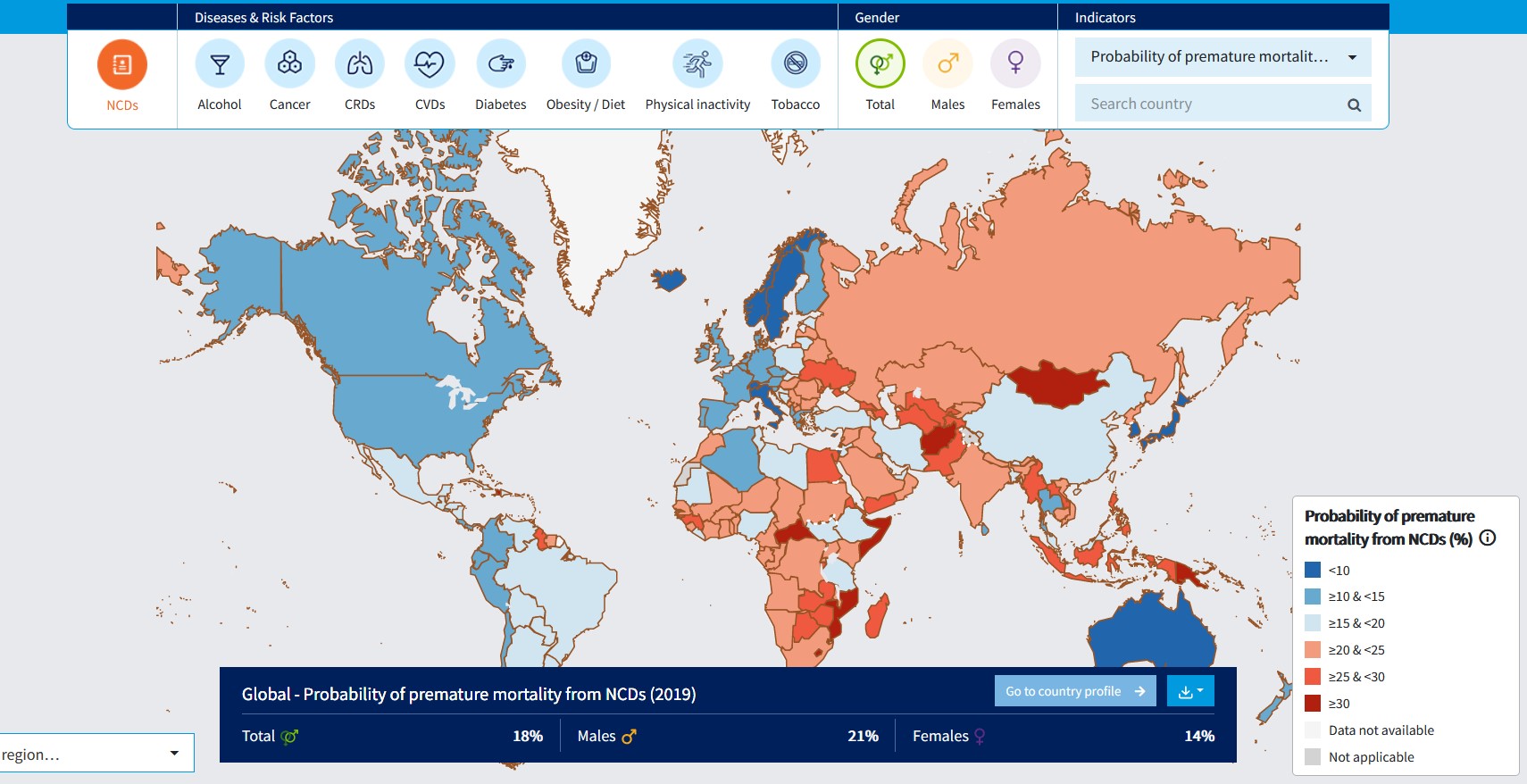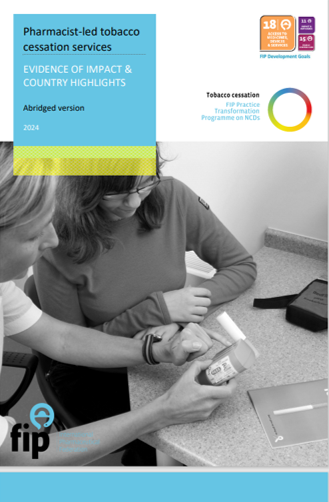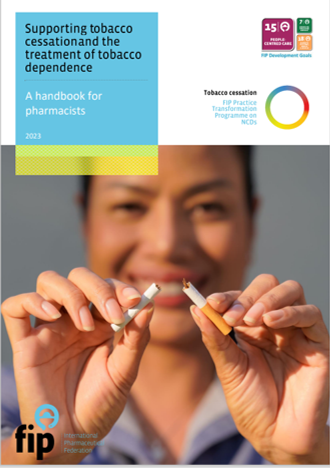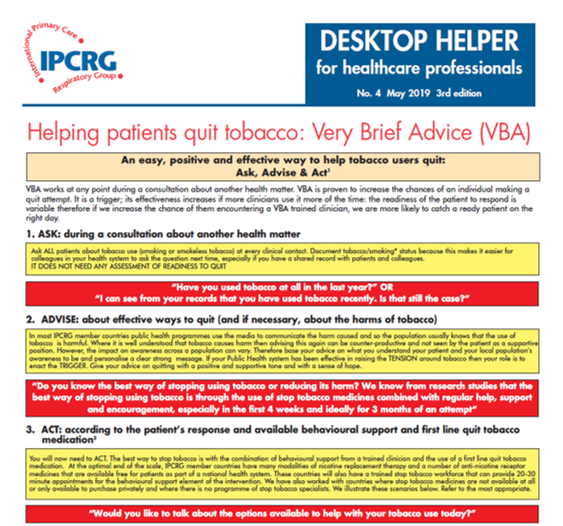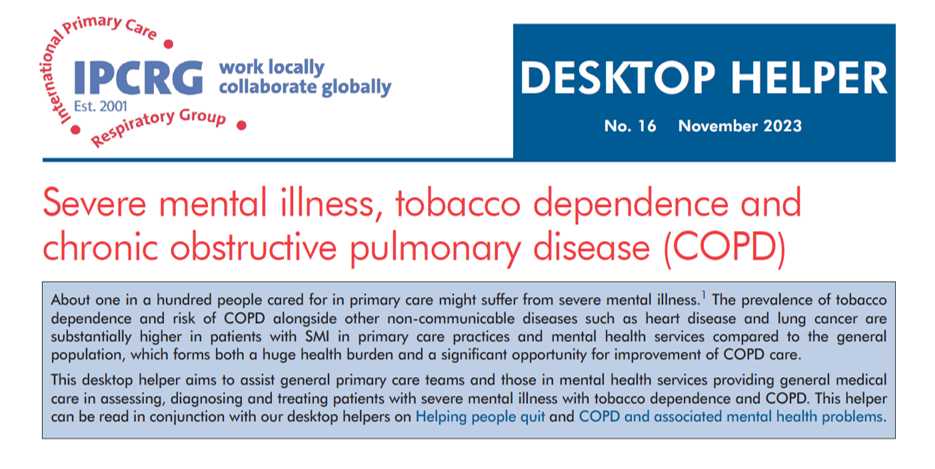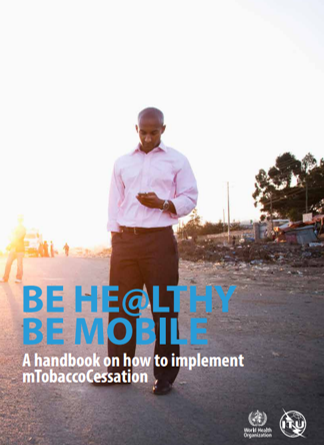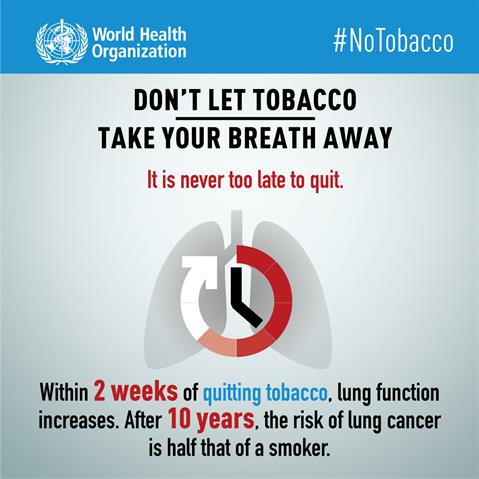Globally, 1.25 billion people use tobacco. 80% of them live in low- and middle-income countries where the burden of tobacco-related illness and death is heaviest.
Among smokers who are aware of the dangers of tobacco, most want to quit. Counselling and medication can more than double the chance of successfully quitting. However, currently only 23 countries provide comprehensive counselling cessation services with full or partial cost-coverage to assist tobacco users to quit -this represents ~30% of the world's population.
Health professionals have the greatest potential of any group in society to promote the reduction of tobacco use. Studies show that few people understand the specific health risks of tobacco which include chronic respiratory diseases, lung cancer, heart disease and stroke. Brief advice from health professionals can increase quitting success rates by up to 30%, while intensive advice increases the chance of quitting by 84%.
Under WHO’s Framework Convention on Tobacco Control (FCTC), countries are mandated to treat tobacco use and dependence. WHO provides capacity building and training packages to help governments establish or strengthen their national tobacco cessation systems including integrating brief tobacco interventions into their primary care systems, developing national toll-free quit lines and mCessation projects.
Offering help to quit is also one of the five key interventions in the MPOWER package of technical measures and resources which WHO introduced in 2007.
For more resources, events and news items related to chronic respiratory diseases and tobacco, please take a look at the GARD community.
Click here to access GARD community

